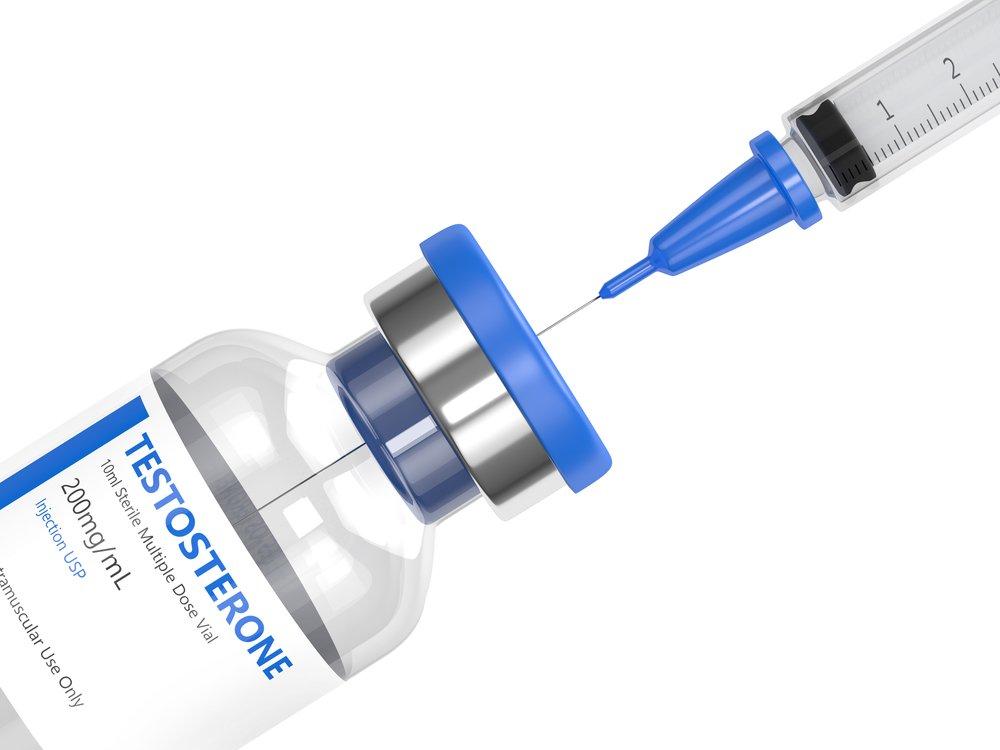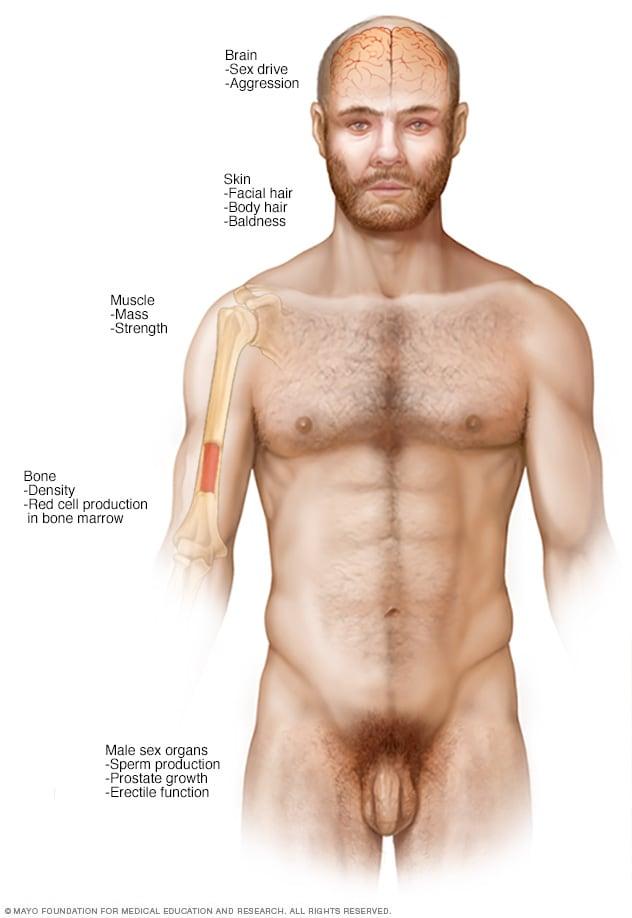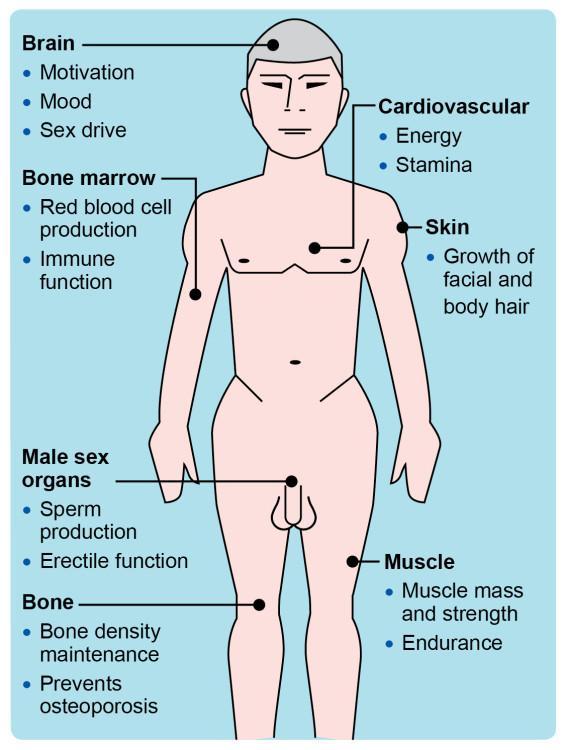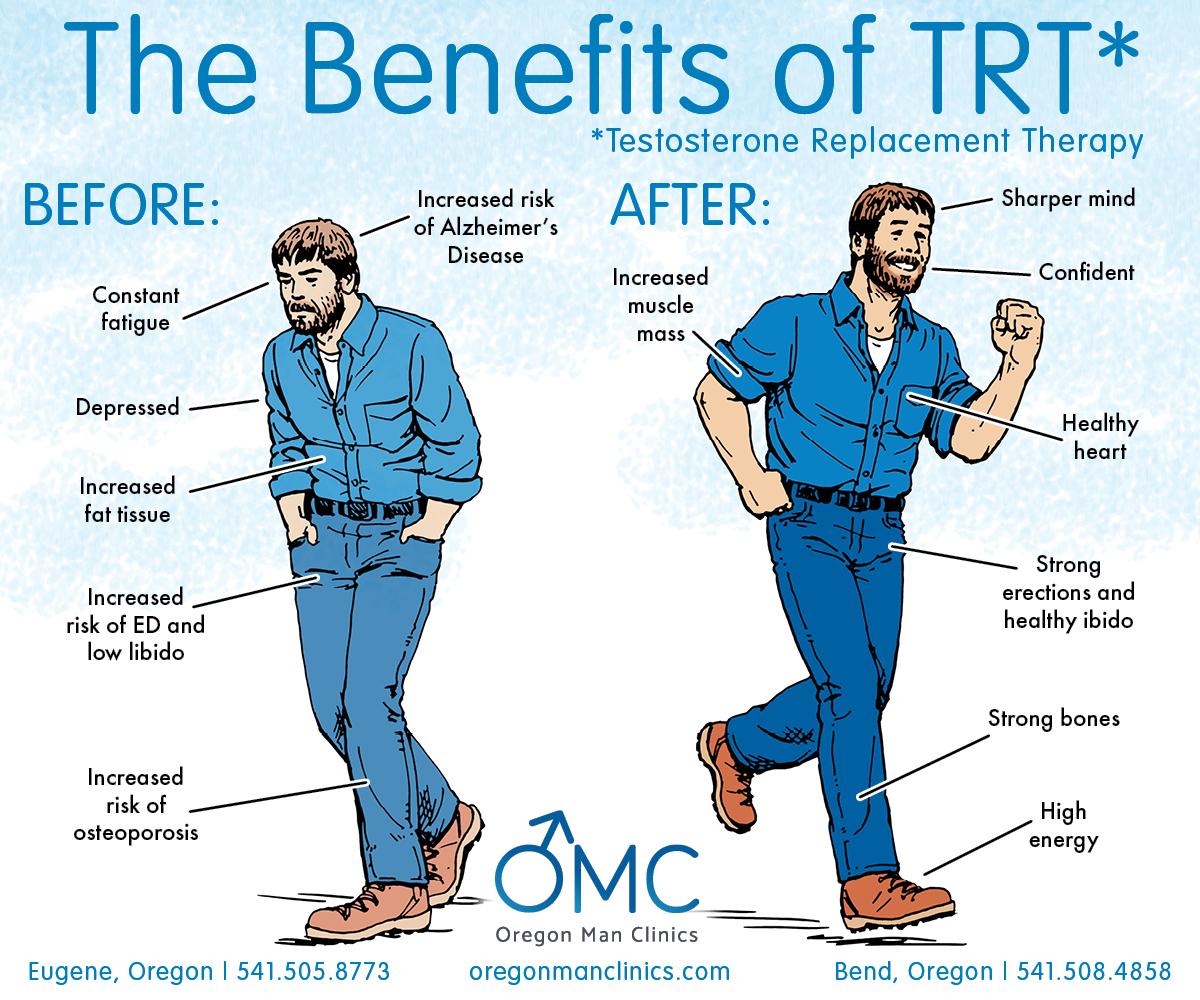In a world where the quest for weight loss often feels like navigating a labyrinth filled with contradictory advice and fleeting trends, the spotlight has turned towards a promising contender: testosterone therapy. Traditionally associated with muscle building and energy enhancement, testosterone’s role in weight management is garnering attention as more individuals seek effective and sustainable solutions to shed excess pounds. As research unfolds, questions arise: Can testosterone therapy truly aid in weight loss? Who stands to benefit? This article invites you to explore the emerging connection between hormone levels and body weight, delving into the science, potential benefits, and the critical considerations surrounding testosterone therapy. Join us on this informative journey as we uncover the intricacies of this intriguing approach to weight management.
Understanding the Role of Testosterone in Metabolism and Weight Management
Testosterone, often recognized primarily as a male hormone, plays a vital role in the metabolism of both men and women. It contributes to muscle mass, which is crucial for a higher metabolic rate. With increased muscle tissue, the body burns more calories at rest, thus aiding in weight management. Furthermore, testosterone influences fat distribution, promoting a leaner physique. As levels of this hormone decline, individuals often experience increased fat storage and a struggle to maintain a healthy weight. Ensuring optimal testosterone levels, therefore, becomes pivotal for those seeking to manage their metabolism effectively.
Studies have shown that testosterone therapy may improve body composition and facilitate weight loss, particularly in individuals with low testosterone levels. When considering testosterone therapy for weight management, it’s essential to recognize the various approaches available. Here’s a brief overview of potential benefits:
| Benefit | Description |
|---|---|
| Enhanced Muscle Mass | Increased levels of testosterone can promote muscle growth. |
| Fat Reduction | Supports more effective fat burning mechanisms in the body. |
| Improved Mood | Increases motivation and energy levels, leading to better exercise adherence. |
While the prospect of testosterone therapy may be appealing, it is essential to engage with healthcare professionals to assess individual needs and potential risks. Monitoring hormone levels and lifestyle changes, such as diet and exercise, can create a comprehensive strategy for weight loss that synergizes with the benefits of hormone therapy.

Exploring the Benefits of Testosterone Therapy Beyond Weight Loss
While many associate testosterone therapy primarily with weight loss, its advantages extend far beyond just shedding pounds. Among its notable benefits are improvements in muscle mass, bone density, and overall energy levels. Research indicates that increased testosterone can lead to enhanced muscle growth, making workouts more effective and resulting in better physical performance. Additionally, higher testosterone levels contribute to stronger bones, which can lower the risk of fractures and osteoporosis, especially crucial as one ages. Increased energy levels can also enhance quality of life, allowing individuals to engage more actively in their daily activities.
Beyond physical transformations, testosterone therapy can offer significant mental health benefits. Many patients have reported improvements in mood, cognitive functions, and overall wellbeing. Testosterone’s role in regulating mood can help alleviate symptoms of depression and anxiety for some individuals. Cognitive benefits may include sharper focus and improved memory, making everyday tasks more manageable. As such, the psychological enhancements that come alongside testosterone therapy can serve as a catalyst for a healthier lifestyle, empowering individuals to embrace new challenges.

Identifying Candidates for Testosterone Therapy: Who Can Benefit?
Determining who might benefit from testosterone therapy involves evaluating several factors, particularly symptoms and lifestyle. Individuals experiencing low energy levels, decreased muscle mass, or significant weight gain, alongside specific metabolic indicators, may be prime candidates. Common symptoms to assess include:
- Fatigue: Chronic tiredness that hampers daily activities.
- Depression: Persistent low mood affecting motivation and overall well-being.
- Reduced libido: Noticeable decrease in sexual desire or function.
- Difficulty concentrating: Trouble focusing or remembering tasks.
Additionally, medical history plays a crucial role in candidate identification for therapy. Conditions such as obesity, diabetes, and hypogonadism are significant risk factors that may warrant evaluation for testosterone therapy. Healthcare providers often utilize laboratory tests to gauge testosterone levels and consider factors like:
| Condition | Testosterone Impact |
|---|---|
| Obesity | May contribute to lower testosterone levels, impacting metabolism. |
| Diabetes | Associated with hormonal imbalances that testosterone therapy can address. |
| Hypogonadism | Directly linked to insufficient testosterone production. |

Navigating the Risks and Side Effects of Testosterone Treatment
While testosterone therapy can offer potential benefits in weight loss and muscle mass improvement, it is essential to remain vigilant about the associated risks and side effects. Some individuals may experience mood swings or changes in mental health, including increased anxiety or irritability. Additionally, physical side effects can manifest as acne or sleep apnea, which may not only affect comfort but also overall well-being. It’s crucial for anyone considering this treatment to have a thorough discussion with their healthcare provider about their medical history to mitigate potential complications.
Moreover, the long-term consequences of testosterone therapy are still an area of ongoing research. Users should be aware of possible cardiovascular risks, which may include an increased chance of heart attack or stroke. Regular monitoring of health markers is advisable, including:
- Blood pressure
- Lipid levels
- Hemoglobin levels
Maintaining a dialogue with healthcare providers about these factors can help ensure that any treatment plan remains safe and effective. Understanding these risks highlights the importance of a well-informed decision-making process when considering testosterone therapy for weight loss.
Implementing a Comprehensive Approach: Combining Therapy with Lifestyle Changes
When considering testosterone therapy for weight loss, integrating various lifestyle modifications can amplify the potential benefits and promote lasting changes. Emphasizing a balanced diet alongside therapy can enhance results, as nutrition directly impacts hormonal balance, metabolism, and overall well-being. Key dietary changes may include:
- Incorporating Lean Proteins: Foods like chicken, fish, and legumes help build muscle mass.
- Focusing on Healthy Fats: Avocados, nuts, and olive oil support hormone production.
- Prioritizing Whole Grains: Quinoa, brown rice, and oats provide sustained energy and fiber.
- Hydration: Drinking adequate water ensures metabolic functions operate efficiently.
Alongside these dietary changes, regular physical activity is vital. Engaging in resistance training and aerobic exercises can further boost testosterone levels while enhancing fat loss and muscle retention. A sample weekly exercise plan could look like:
| Day | Workout Type | Duration |
|---|---|---|
| Monday | Strength Training | 45 minutes |
| Wednesday | HIIT Cardio | 30 minutes |
| Friday | Full Body Workout | 60 minutes |
| Saturday | Outdoor Activities (Hiking, biking) | Varies |
By combining testosterone therapy with conscious lifestyle adjustments, individuals can optimize their weight loss journey, promoting not just physical changes but also improved mental clarity and energy levels.
Monitoring Progress: How to Measure the Success of Testosterone Therapy
Measuring the effectiveness of testosterone therapy requires a comprehensive approach that encompasses physical, emotional, and biochemical markers. Initial and follow-up assessments should include
- Body Composition: Monitor changes in muscle mass and body fat percentage through methods like DEXA scans or bioelectrical impedance analysis.
- Energy Levels: Evaluate improvements in energy and vitality through patient self-reporting scales.
- Hormone Levels: Regular blood tests to track serum testosterone levels and ensure they are within the optimal range.
Additionally, tracking quality of life indicators plays a crucial role in understanding the overall impact of therapy. Consider maintaining a log for aspects such as:
- Sexual Function: Assess libido and performance using validated questionnaires.
- Mood and Well-being: Implement psychological assessments to gauge improvements in mood and cognitive function.
- Physical Performance: Use standardized fitness tests to monitor strength and endurance over time.
| Measurement | Before Therapy | After 6 Months |
|---|---|---|
| Testosterone Level (ng/dL) | 200 | 600 |
| Body Fat Percentage (%) | 30 | 25 |
| Muscle Mass (kg) | 60 | 68 |
Expert Recommendations: Finding the Right Healthcare Provider for Testosterone Therapy
Choosing the right healthcare provider for testosterone therapy is crucial to ensuring safety and effectiveness in your weight loss journey. Look for professionals who specialize in hormonal therapies, particularly endocrinologists or urologists with extensive experience in managing testosterone levels. When evaluating potential providers, consider the following factors:
- Qualifications: Confirm their credentials and any specialized training in hormone therapy.
- Experience: Inquire about the number of patients they have treated specifically for testosterone therapy.
- Patient Reviews: Read testimonials or seek feedback from previous patients about their experiences.
- Support Services: Ensure the provider offers comprehensive support, including follow-up care and lifestyle management advice.
Additionally, engaging in an open dialogue with potential providers will help you understand their approaches to treatment. Ask about their protocol for monitoring testosterone levels and any potential side effects associated with therapy. The following table outlines key aspects to discuss during your consultations:
| Discussion Topic | Key Questions |
|---|---|
| Treatment Plan | What is your approach to testosterone dosage and administration? |
| Monitoring | How often will my testosterone levels be evaluated? |
| Lifestyle Integration | How do you incorporate exercise and diet into therapy? |
| Side Effects | What potential side effects should I be aware of? |
Q&A
Q&A: Testosterone Therapy for Weight Loss
Q1: What is testosterone therapy, and how is it related to weight loss?
A1: Testosterone therapy involves administering synthetic testosterone to individuals with low hormone levels. While traditionally associated with muscle mass and energy levels, it has garnered attention for its potential impact on fat distribution and metabolism. Some studies suggest that restoring testosterone to optimal levels can facilitate weight loss, particularly in men with low testosterone, by promoting fat oxidation and increasing lean muscle mass.
Q2: Who might benefit from testosterone therapy for weight loss?
A2: Individuals, particularly middle-aged and older men, who have clinically low testosterone levels are the most likely candidates for this therapy. For some, low testosterone is linked to increased body fat and reduced muscle mass. It’s important, however, that therapy is approached under medical supervision, as it may not be suitable for everyone.
Q3: What does the research say about the effectiveness of testosterone therapy for weight loss?
A3: Research indicates that testosterone therapy can lead to a modest reduction in body fat and an increase in lean muscle, particularly in men with low testosterone. Some studies have reported weight loss averages of 5-10% in participants undergoing therapy. However, results can vary significantly based on individual health conditions, lifestyle factors, and adherence to a balanced diet and exercise regimen.
Q4: Are there any risks associated with testosterone therapy?
A4: Like any medical treatment, testosterone therapy comes with potential risks. These may include an increased risk of cardiovascular problems, prostate issues, and changes in mood. It’s vital to have a thorough discussion with a healthcare provider before beginning therapy, who can conduct appropriate screenings and provide guidance on monitoring and dosage.
Q5: Can testosterone therapy replace diet and exercise for weight loss?
A5: No, testosterone therapy is not a substitute for a healthy lifestyle. While it may support weight loss efforts by enhancing muscle mass and metabolic function, a balanced diet and regular exercise remain fundamental for effective and sustainable weight management. Testosterone therapy should be viewed as one component of a broader weight loss strategy.
Q6: How long does it typically take to see results from testosterone therapy?
A6: The timeline for seeing results can vary widely among individuals. Some may notice changes in energy and mood within a few weeks, while noticeable physical changes, such as weight loss or muscle gain, may take several months. Continuous monitoring and regular follow-ups with a healthcare provider ensure that individuals stay on track with their goals.
Q7: What factors should someone consider before starting testosterone therapy for weight loss?
A7: Prospective candidates should consider their overall health, the underlying causes of weight gain, personal goals, and any potential contraindications. Consulting with a healthcare provider is essential to assess both the benefits and risks based on individual circumstances. Additionally, understanding that testosterone therapy is most effective when combined with lifestyle changes is crucial.
Q8: Can women use testosterone therapy for weight loss?
A8: Testosterone therapy is generally less common for women, as their testosterone levels are naturally much lower than men’s. Nonetheless, some women with specific hormonal imbalances may be prescribed testosterone therapy, sometimes resulting in improved muscle tone and metabolism. As always, treatment should be tailored to the individual and supervised by a qualified healthcare provider.
Q9: What are alternative approaches to testosterone therapy for weight loss?
A9: There are several alternative approaches, including lifestyle changes—like adopting a healthier diet, incorporating strength training, and increasing physical activity. Nutritional interventions, behavioral therapy, and other hormonal treatments can also play a role in managing weight without the use of testosterone therapy.
Q10: who is testosterone therapy truly for?
A10: Testosterone therapy is designed for those medically diagnosed with low testosterone levels and who may benefit from hormonal treatment. It is not a universal solution for weight loss, and each person’s situation is unique. A collaborative approach with healthcare professionals, focusing on individualized care, remains essential to ensure safe and effective results.
Wrapping Up
the journey through the landscape of testosterone therapy for weight loss reveals a complex interplay of benefits and considerations. While the allure of shedding excess pounds and enhancing vitality is enticing, it is crucial to approach this treatment with a balanced perspective. The evidence suggests that testosterone therapy can play a role in weight management, particularly for those facing hormonal deficiencies. However, it is essential to engage in open dialogue with healthcare professionals to fully understand the implications, potential side effects, and best practices.
As we navigate the myriad of weight loss options available today, we must remember that each individual’s body is unique, and what works for one may not work for another. Therefore, personal health should always remain at the forefront of any weight loss journey. Ultimately, whether you choose to explore testosterone therapy or opt for more traditional methods, the key lies in fostering a holistic approach to health, one that combines informed choices, a balanced diet, and regular physical activity. May your path to wellness be enlightened with knowledge and guided by expertise, leading you to the results you seek.










